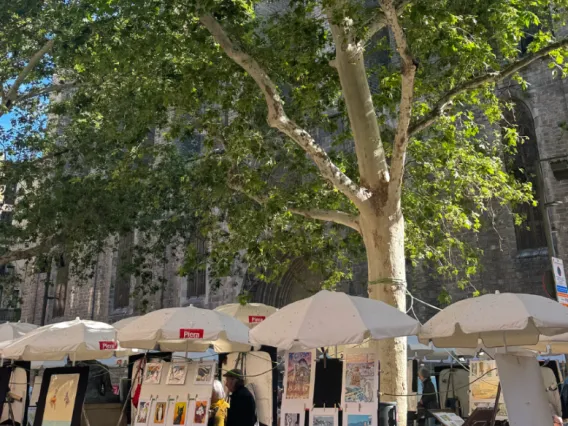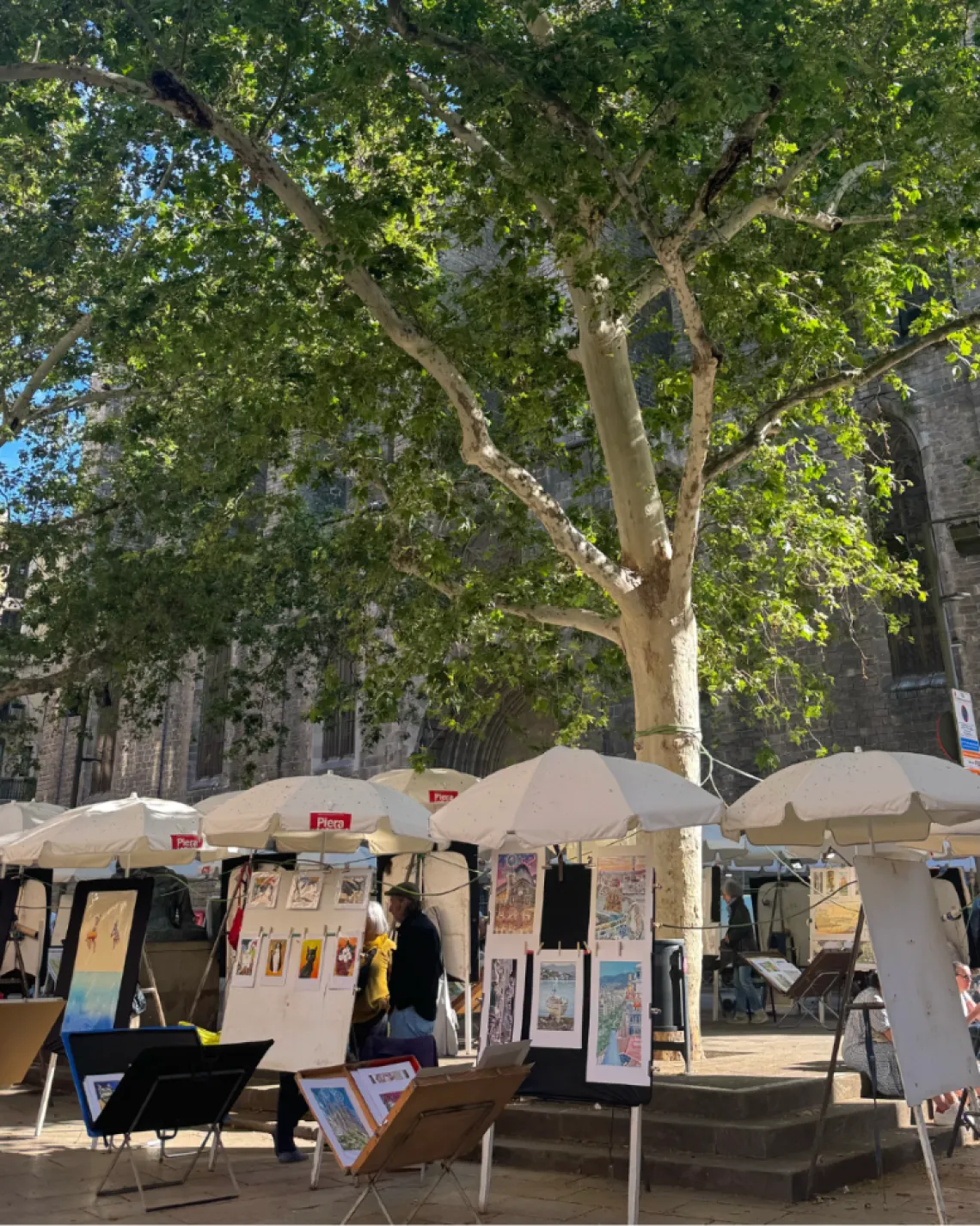Embracing cultural immersion during your time abroad
In her study abroad blog, AZI intern Kylie shares her experiences and advice for students studying abroad.

Cascada Monumental in Barcelona, Spain

There’s nothing quite like learning through your own senses. When I studied abroad in Barcelona, I learned the culture through the sight of Gaudi’s art, the taste of paella, the sound of Catalan Rumba music on the streets, the smell of Barceloneta Beach’s waves, and the touch of the Gothic Quarter streets beneath my feet.
Cultural immersion is a powerful way to gain a new perspective by experiencing it for yourself! You can see countless videos of new places on social media, but they don’t capture the joy of trying things yourself or the little moments walking down the street or interacting with locals.

Flamenco performance in Barcelona, Spain.
If I hadn’t studied abroad, I would have never seen flamenco dancing, tasted patatas bravas (the Spanish tapa equivalent of french fries), or visited almost all the art museums in Barcelona through my art class. Experiencing cultural immersion has easily been one of the best experiences of my entire life, but there are undoubtedly still some challenges when adapting to a new culture and important considerations to ensure you are respecting your host culture. Below I shared some of the ways I overcame adaptation challenges and showed respect to my host country:
Language Barriers
In most study abroad destinations, language barriers are present. To help ease this concern, I recommend learning some of your host country’s language. The more knowledge you have the better, but on a base level a good trick is to write down and memorize functional and common phrases such as how to direct a taxi where your destination is, order meals, and ask for directions. I found knowing these day-to-day phrases helped alleviate the stress of daily activities. Many people may speak English in your host country, but making an effort to learn the language can also be a sign of courtesy.
Cultural Differences
Each culture varies, and the best way to prepare yourself to study in your host country is to educate yourself on the culture before you leave. Consider learning about the education system, religious practices, government, and communication norms before leaving so you know what to expect. Upon arrival, stay open-minded to differences, but also stay curious. Continuing to ask questions and explore your host country’s culture will have you constantly learning!

Arc de Triomf
Some great sites I have used to start learning about my host country’s culture and geography include the Destinations page on National Geographic’s website and the Geography & Travel section on Britannica’s website. Additionally, I have spent countless hours in the Travel section at Barnes & Noble and find travel books such as Fodor’s Travel Guides are a very helpful way to find lots of information in one place!
Homesickness
Leaving home is hard, and it is absolutely normal to experience culture shock and homesickness at some point while you are abroad. My biggest tip is to embrace your new adventure, while simultaneously finding creative ways to connect back to your support system at home.

Kylie in front of La Sagrada Familia.
When feeling homesick, it’s normal to want to isolate yourself, but it’s actually the most important time to push your comfort zone and explore everything your host country has to offer. Getting out and adventuring is also the perfect time to make new friends with both other students in your program and with people from your host country! Other students in your program are likely even feeling the same way, so I encourage you to take the chance and ask them if they’d like to go grab dinner or visit a museum with you. That’s how many of the best study abroad friendships start.
Missing family and friends is arguably the hardest part of going abroad, but setting aside designated weekly time to call or FaceTime was a great way I remained connected to loved ones despite the time change. This is especially important during any holidays or other celebrations you may be missing. Taking pictures and videos of your adventures to share with friends and family back home is also a fun way to stay in touch.
Additionally, I recommend finding ways to integrate activities you enjoy in your daily routine at home while you are abroad. Whether that’s running, doing yoga, reading, drawing, writing or any other hobby, this can be a great way to ground yourself when you’re feeling far from home.
Daily Routine Adjustments
As you establish a daily routine during study abroad, I want to emphasize the importance of taking care of both your physical and mental health. Consider how you like to decompress after a long day, and ensure you make time in your daily schedule to process all the changes you are experiencing and take care of yourself.
Finally, as you adjust to everything, the most important thing may just be to remember to laugh at yourself! You’re going to make mistakes and there may be challenges to overcome, but finding the humor in it can turn it all into great learning experiences and possibly even funny memories.
Stepping out of your comfort zone to understand cultures beyond our own is invaluable, and studying abroad is the perfect way to do that. Opening yourself up to new views will support you on your journey to becoming an excellent study abroad student and perceptive global citizen!
To access all of the study abroad blog entries, visit the Kylie Goes Global webpage.









